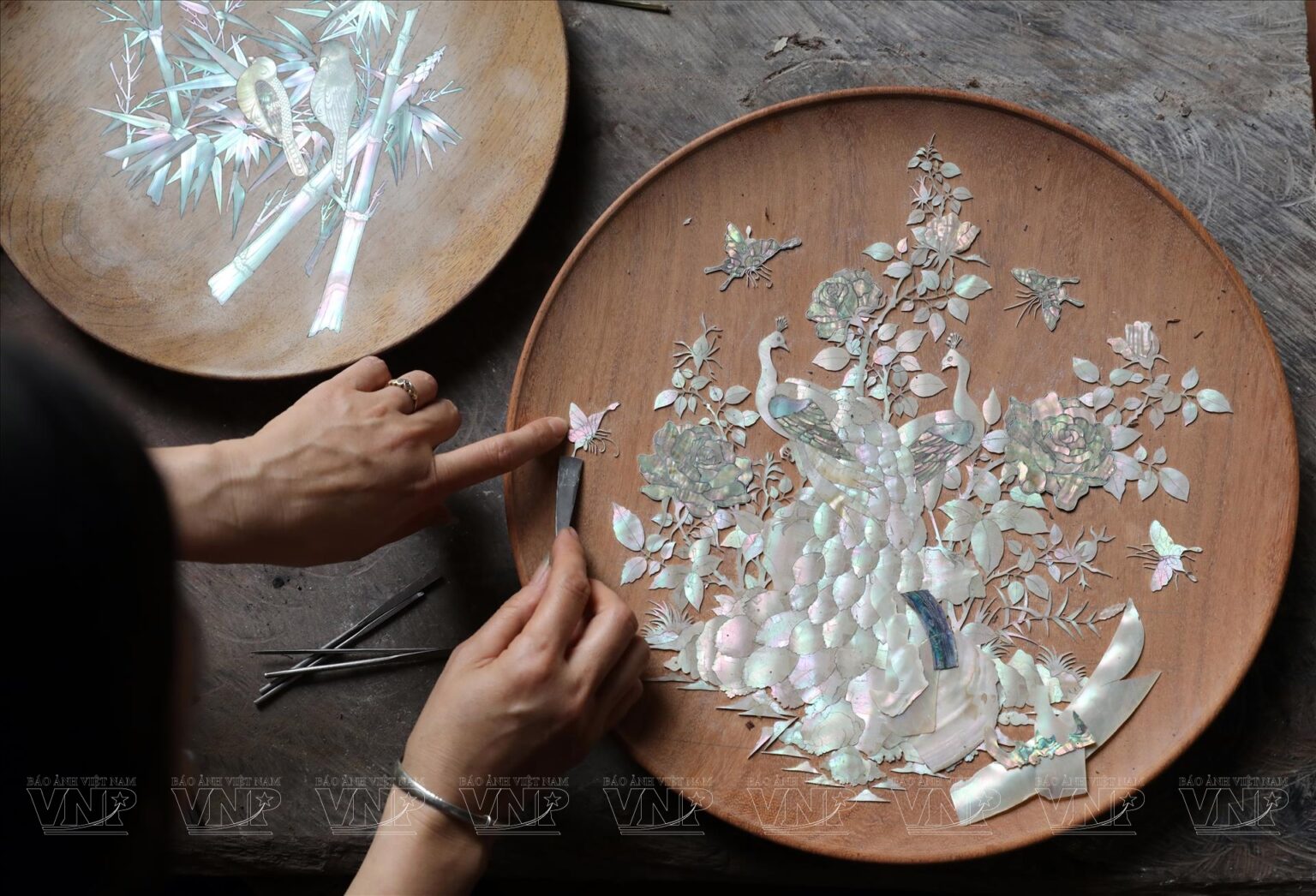In a world increasingly dominated by automation and digital manufacturing, the timeless beauty of handcrafted items continues to captivate the hearts of those who value authenticity, tradition, and human touch. In this realm, Vietnam traditional crafts stand out as a vibrant reflection of the country’s rich cultural history, skilled artisanship, and creative resilience.
From the winding streets of Hanoi’s Old Quarter to the quiet villages tucked away in the Mekong Delta, generations of Vietnamese artisans have preserved, practiced, and perfected their crafts. These crafts are not just functional or decorative—they are cultural symbols, stories passed down through centuries, and testaments to Vietnam’s artistic spirit.
In this article, we delve deep into the world of Vietnam traditional crafts: what they are, why they matter, where you can find them, and how they continue to thrive in the modern era.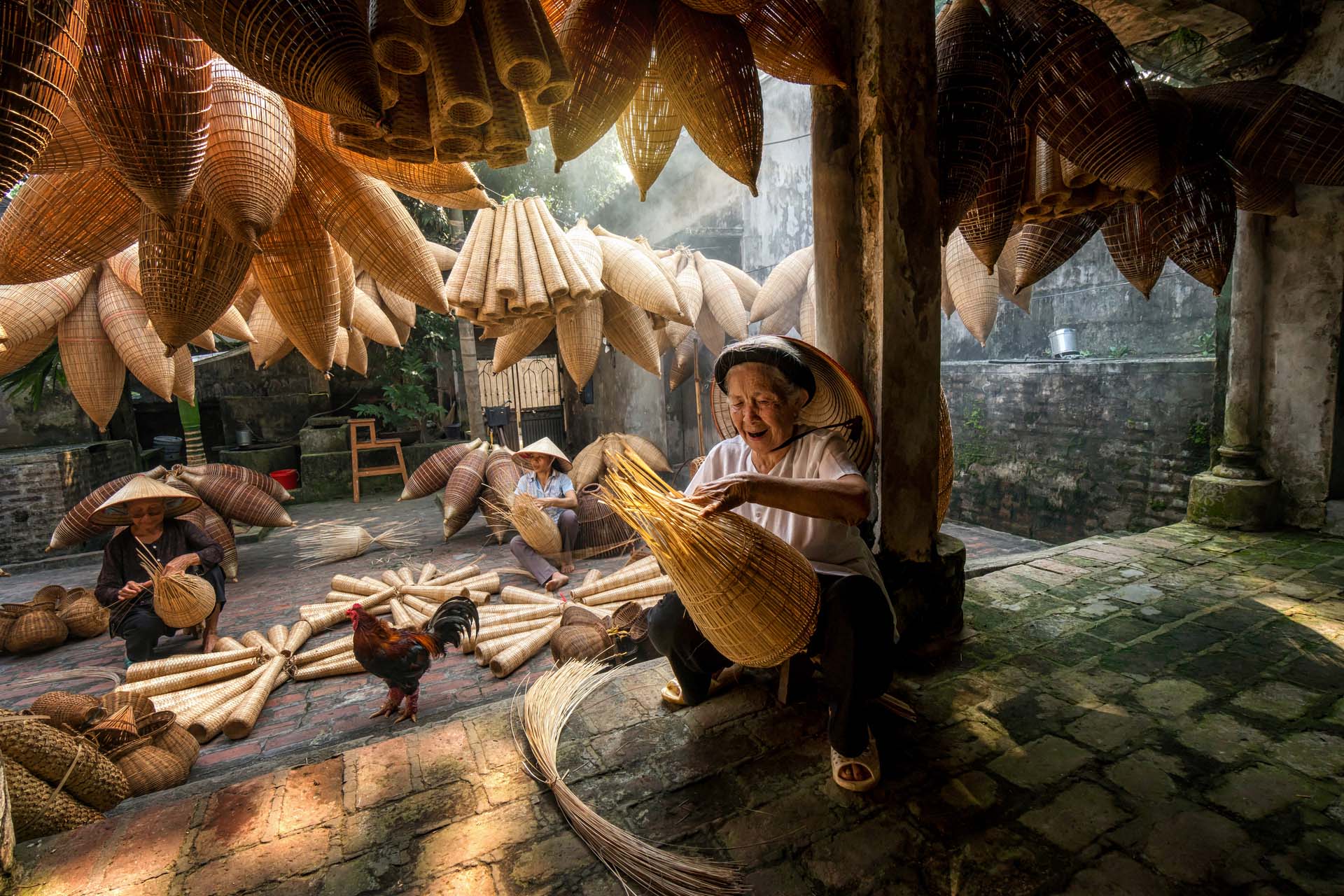
What Are Vietnam Traditional Crafts?
Vietnam traditional crafts are handmade products created by local artisans using techniques and tools that have been passed down through generations. These crafts range from pottery and weaving to wood carving, lacquerware, embroidery, and more.
They reflect regional identities, beliefs, and natural resources. Each craft is deeply tied to its community—both in terms of livelihood and cultural pride.
Unlike factory-made products, traditional crafts are imbued with personal touch, heritage, and meaning. Each item tells a story: of the artisan, the village, and the cultural values it represents.
The Cultural Significance of Vietnamese Crafts
Craftsmanship in Vietnam is not just a means of production; it is an expression of life and values. Whether it’s a silk scarf from Hà Đông, a hand-painted ceramic vase from Bát Tràng, or a bamboo basket from Phú Vinh, every piece reflects:
- Aesthetic traditions rooted in centuries-old techniques
- Spiritual beliefs and customs tied to Vietnamese philosophy and religion
- Ethnic diversity, with Vietnam home to 54 ethnic groups, each with its own craft identity
- Community bonding, as many villages work collectively in the production process
In essence, Vietnam traditional crafts are an embodiment of the nation’s heritage—visual stories that merge art, culture, and everyday life.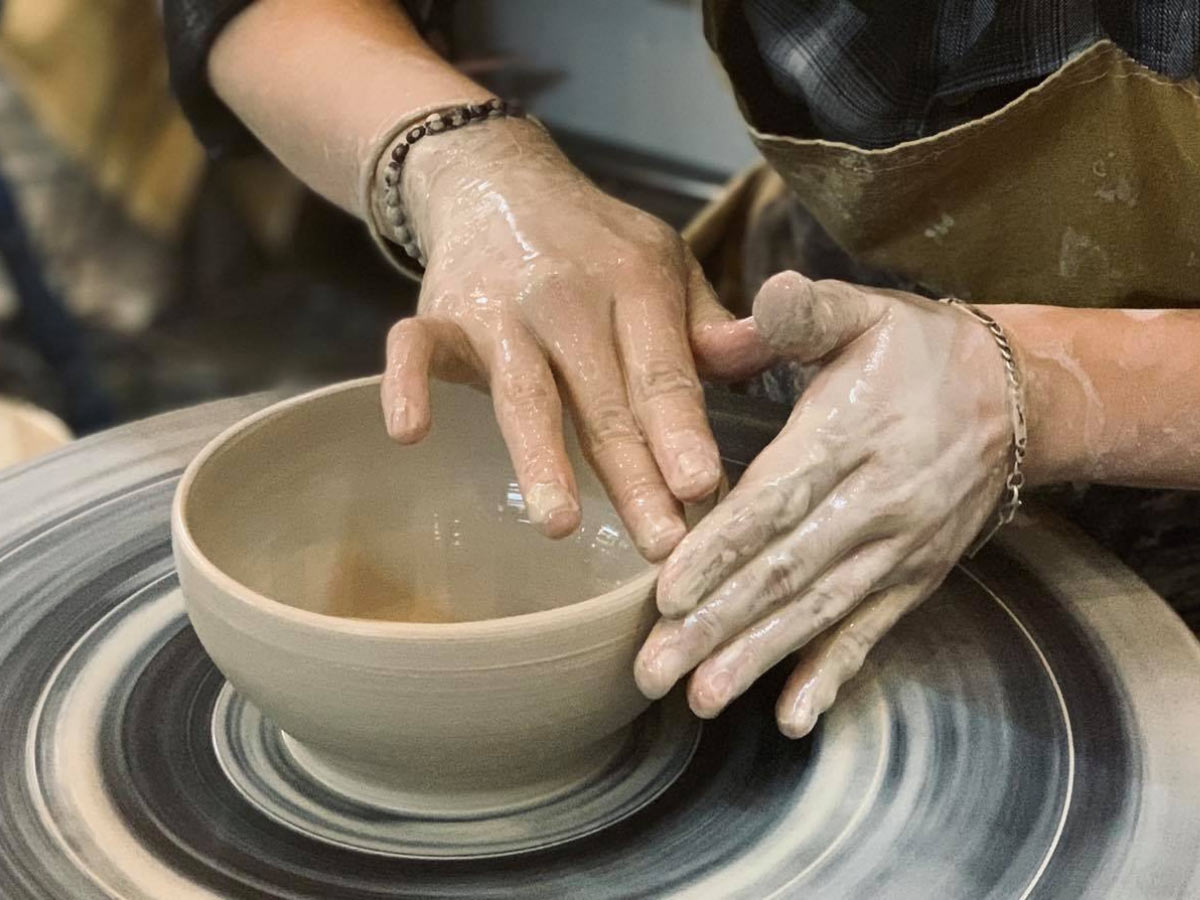
The Craft Villages of Vietnam: Living Museums of Tradition
Vietnam’s craft culture is closely associated with its thousands of craft villages—rural communities dedicated to specific trades. As of today, Vietnam has more than 5,400 craft villages, with the majority located in Northern Vietnam, particularly around the Red River Delta.
Notable Craft Villages:
- Bát Tràng (Hanoi) – Ceramics and pottery
- Vạn Phúc (Hà Đông, Hanoi) – Silk weaving
- Phùng Xá (Mỹ Đức, Hanoi) – Lotus silk innovation
- Phú Vinh (Chương Mỹ, Hanoi) – Bamboo and rattan weaving
- Hạ Thái (Thường Tín, Hanoi) – Lacquer painting
- Quất Động (Hanoi) – Hand embroidery
- La Xuyên (Nam Định) – Wood carving
- Tống Xá (Nam Định) – Bronze casting
Each village has developed its craft over centuries, adapting to local materials, environments, and cultural needs.
Top Vietnam Traditional Crafts to Discover
Let’s take a closer look at some of the most iconic traditional crafts you can discover in Vietnam.
1. Ceramics & Pottery (Bát Tràng, Phù Lãng)
Bát Tràng, just outside Hanoi, is one of the most famous pottery villages in Vietnam. For over 700 years, artisans here have crafted bowls, vases, statues, and tiles using red clay from the Red River.
Today, Bát Tràng combines tradition with innovation, offering workshops for tourists and exporting ceramics worldwide.
2. Silk Weaving (Vạn Phúc, Phùng Xá)
Vietnamese silk is world-renowned for its quality and elegance. Vạn Phúc village has been producing silk for over a thousand years, even used by emperors during the Nguyen Dynasty.
A modern innovation comes from Phùng Xá village, where artisan Phan Thị Thuận developed lotus silk—a rare fabric made from lotus stems, exported to Europe and Japan for its luxurious feel and eco-friendly nature.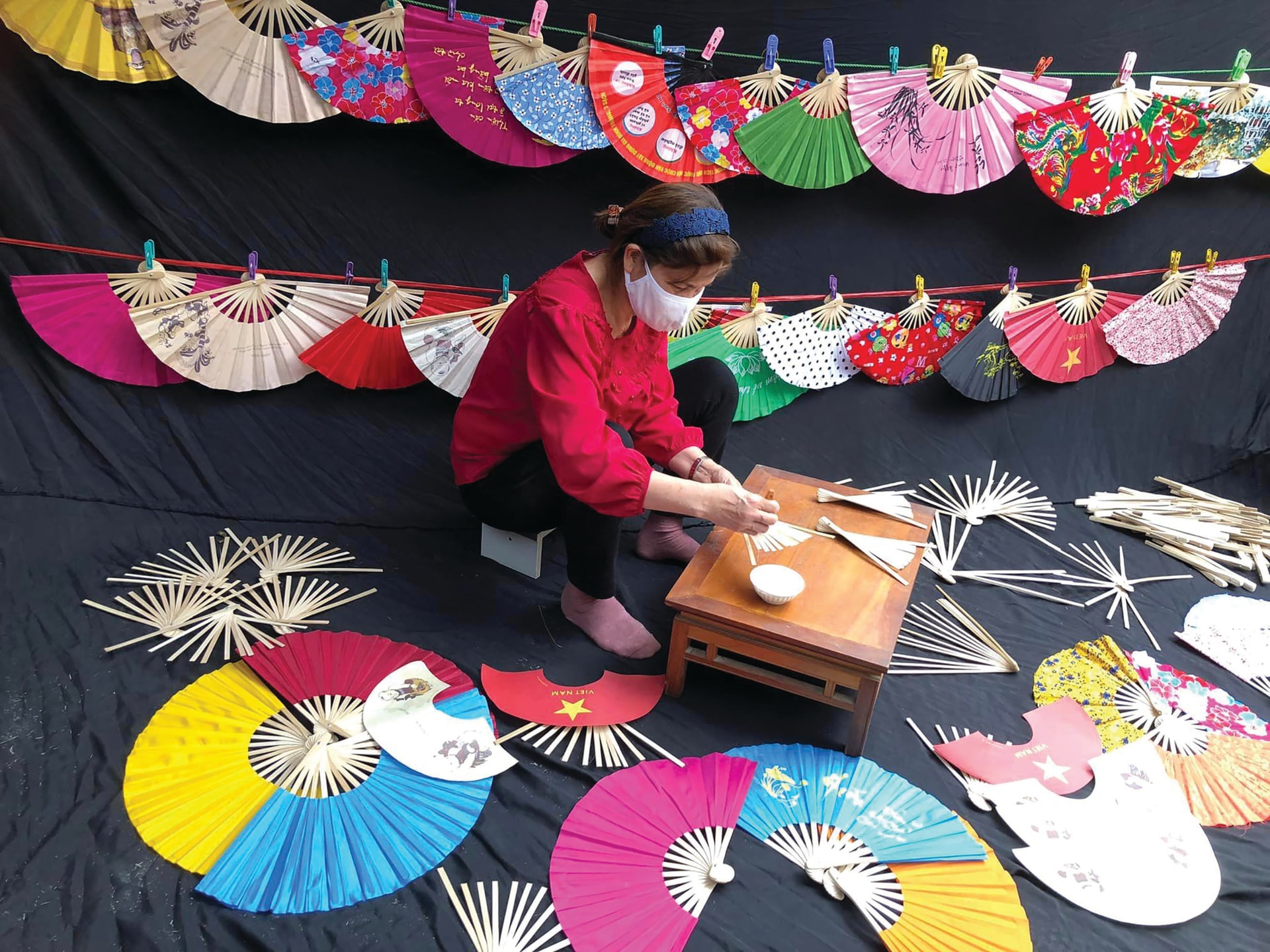
3. Lacquerware (Hạ Thái)
Vietnamese lacquer painting is a unique art form, requiring layers of polishing, painting, and drying over weeks or months. The result is stunning: glossy surfaces with intricate designs in gold, silver, eggshell, and mother-of-pearl.
Hạ Thái village is famous for producing lacquer panels, furniture, and home decor pieces.
4. Embroidery (Quất Động)
The hand embroidery of Quất Động is an art of patience and precision. Artisans create complex patterns—landscapes, portraits, calligraphy—using nothing but thread and needle. Each piece can take weeks or even months to complete.
5. Bamboo and Rattan Crafts (Phú Vinh, Vĩnh Hào)
Crafting with bamboo and rattan is deeply rooted in Vietnamese rural life. From baskets and trays to furniture and décor, these eco-friendly crafts are both functional and beautiful. Phú Vinh village near Hanoi is a hub for high-quality bamboo weaving.
The Artisans: Guardians of Heritage and Innovation
Vietnamese artisans are more than craftsmen—they are guardians of heritage and symbols of creativity.
Many have spent decades refining their techniques. Others are blending tradition with modern design, elevating Vietnam’s crafts onto the global stage.
For example:
- In Tống Xá (Nam Định), artisans now use 3D and 4D casting techniques to create bronze statues of national heroes and spiritual figures—combining technology with traditional metalwork.
- In Bình Minh wood village, craftsmen utilize CNC machines for precision while maintaining hand-finishing for artistry.
These examples show how Vietnam traditional crafts are evolving—embracing modern tools without losing their soul.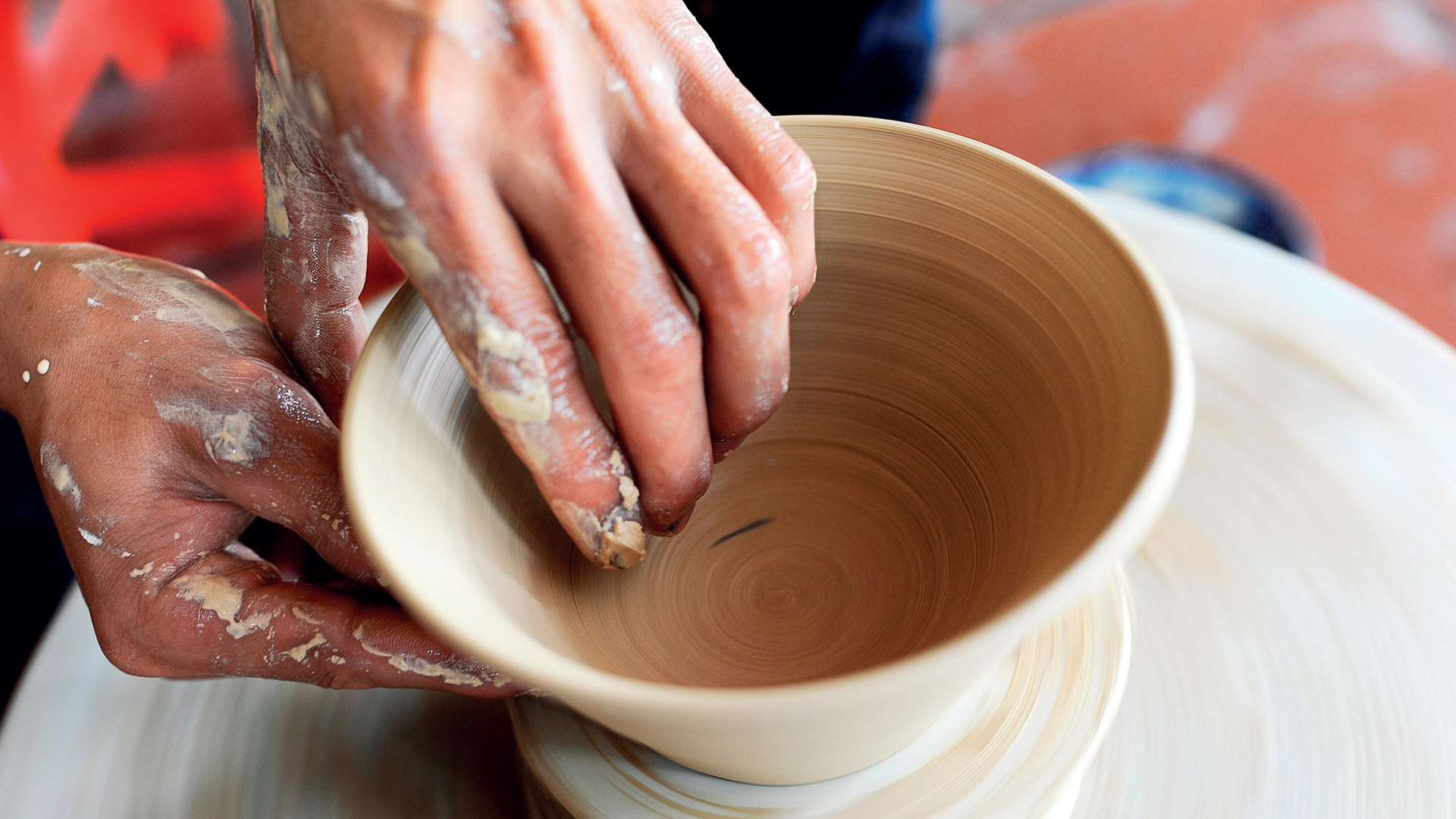
Traditional Crafts and the Modern Economy
Craft Exports
Many villages now contribute significantly to the national economy through exports. Vietnamese traditional crafts are sold in over 20 countries, including Japan, the U.S., and across Europe.
Industries such as:
- Home décor
- Fashion and textiles
- Giftware
- Spiritual and religious artifacts
…have found international markets that appreciate the uniqueness and sustainability of handcrafted goods.
E-Commerce and Digitization
Craft villages like Bát Tràng and Hạ Thái have taken advantage of social media and e-commerce to reach broader audiences. Selling on Facebook, Instagram, Shopee, and Etsy, they showcase Vietnam’s creativity beyond physical borders.
Traditional Crafts and Tourism: A Perfect Pairing
Vietnam’s rise in experiential tourism has created opportunities for craft villages to attract visitors who want more than sightseeing.
What Tourists Can Do:
- Join a pottery class in Bát Tràng
- Weave silk or observe lotus fiber extraction in Phùng Xá
- Create your own lacquer painting in Hạ Thái
- Purchase unique gifts directly from local artisans
- Attend festivals showcasing craft heritage and rituals
These immersive experiences allow visitors to understand the cultural depth behind each item, making their journey meaningful and memorable.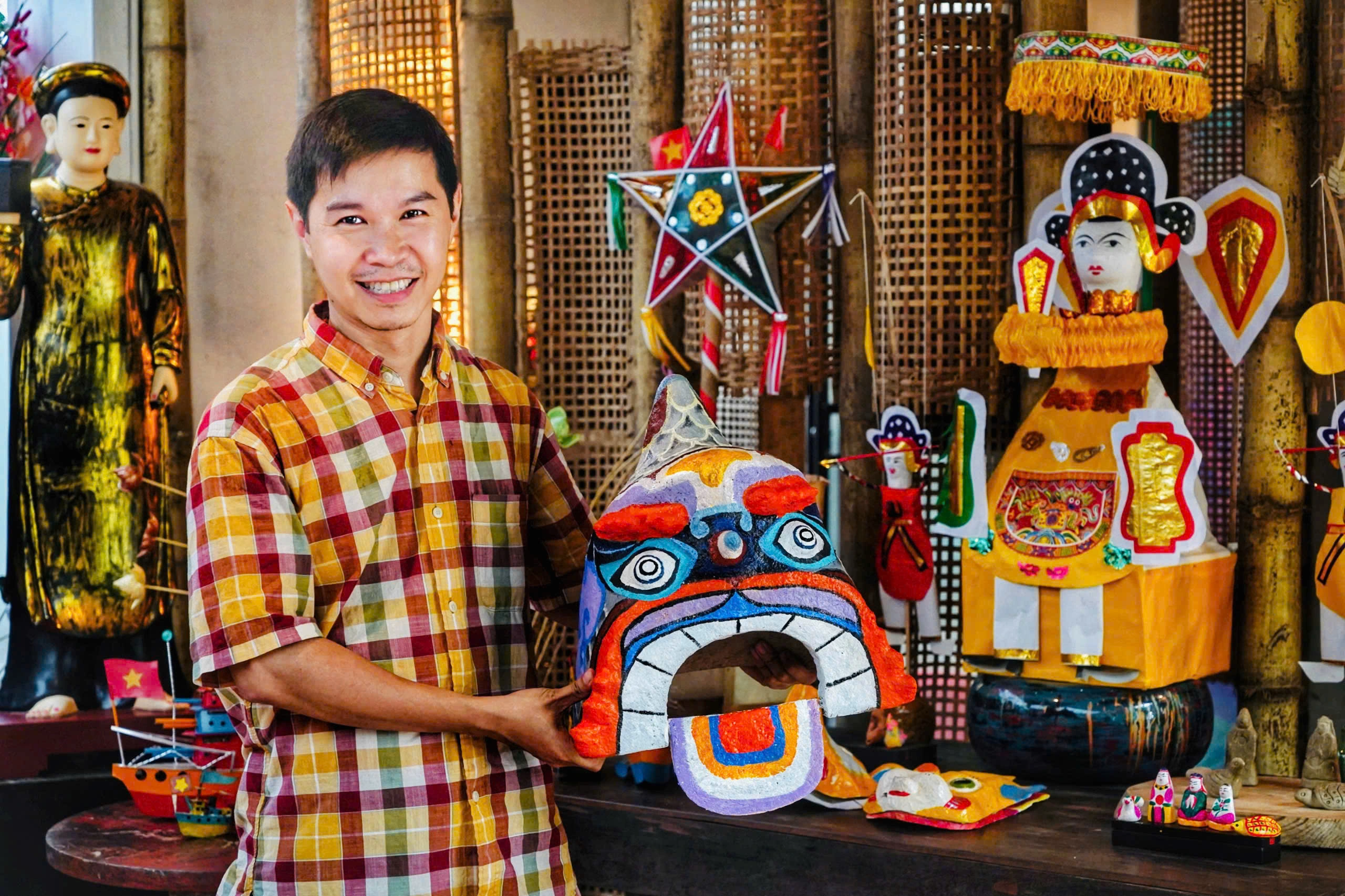
Challenges Facing Vietnam Traditional Crafts
Despite their beauty and significance, traditional crafts face real threats:
- Aging artisan population: Young people are moving to cities, leaving villages without successors.
- Urbanization: Modern infrastructure development is shrinking craft village space.
- Global competition: Cheaper mass-produced alternatives are flooding the market.
- Lack of branding and market access: Many artisans don’t know how to promote their products abroad.
Solutions and Strategies for Preservation
Government and NGO Support
- Programs supporting craft training and tourism integration
- Promotion at international trade fairs and exhibitions
- Digital transformation assistance for small craft businesses
- Preservation of intangible heritage, such as festivals and oral histories
Private Sector and Design Collaboration
Many craft businesses are now partnering with designers to create modern products using traditional techniques. For example:
- Modern homeware with ethnic motifs
- Fashion lines using brocade and hand embroidery
- Luxury packaging for lacquerware gifts
This fusion of tradition and innovation is critical for global appeal and sustainability.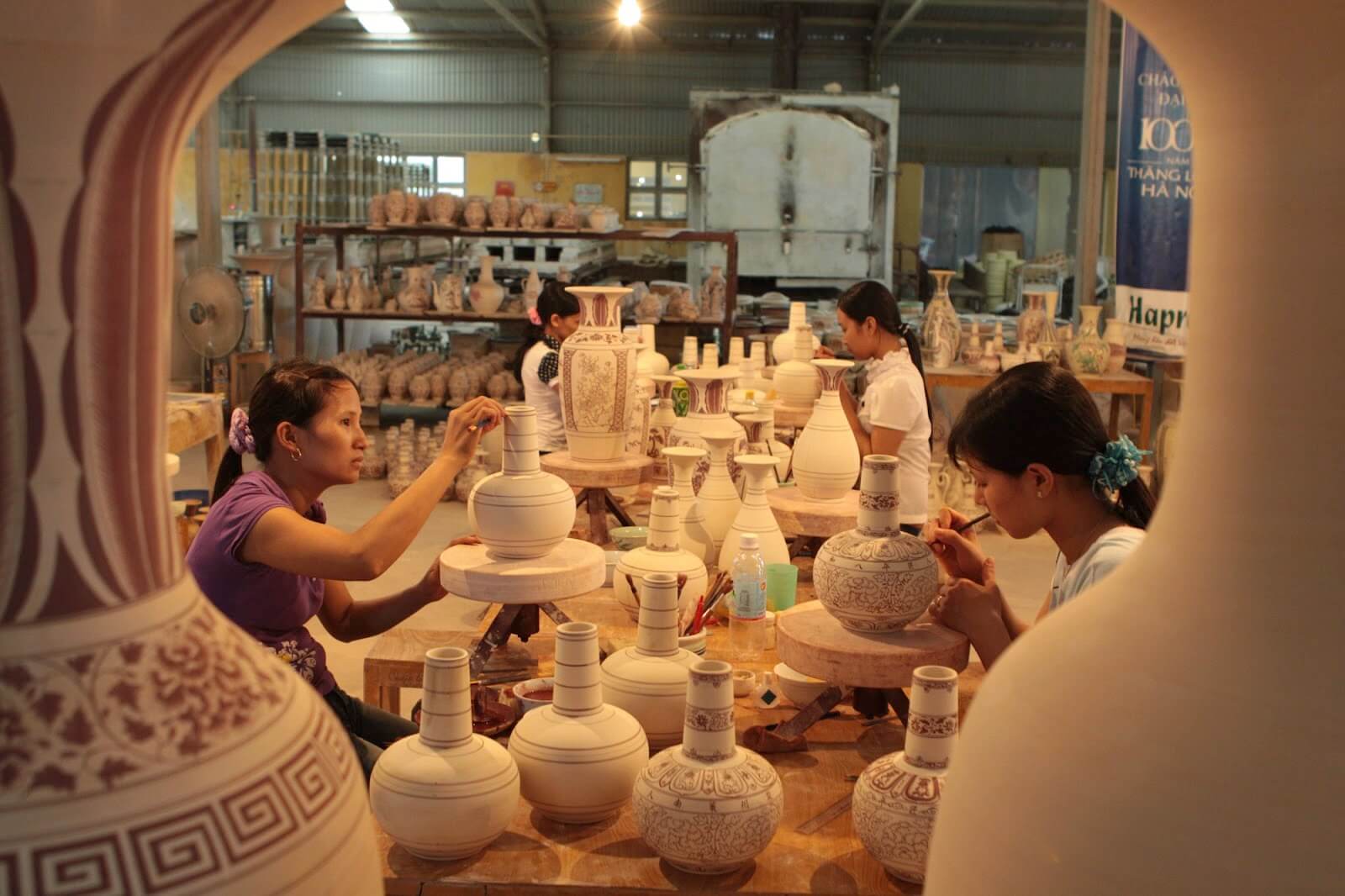
How You Can Support Vietnam Traditional Crafts
As a visitor or customer, here’s how you can support this living heritage:
- Buy authentic handicrafts from recognized artisans or cooperatives
- Avoid factory-made replicas
- Join workshops to understand the value of the process
- Share your experience on social media to inspire others
- Donate or invest in cultural preservation projects
By doing so, you help sustain a tradition that defines Vietnam’s identity.
Vietnam traditional crafts are more than creative expressions—they are bridges between past and present, between communities and the world. Whether it’s a handcrafted ceramic, a piece of lotus silk, or a bamboo basket, every item reflects a nation’s soul.
For foreign travelers and culture lovers, engaging with these crafts offers a richer, more authentic experience of Vietnam. You’re not just bringing home a souvenir—you’re taking part in a story of tradition, resilience, and beauty that spans generations.
Let your next journey to Vietnam be one of discovery, creativity, and cultural connection through the timeless world of Vietnamese traditional crafts with Vietnam Culture.
See more post: Vietnamese hospitality: The heartbeat of Vietnam’s cultural soul

